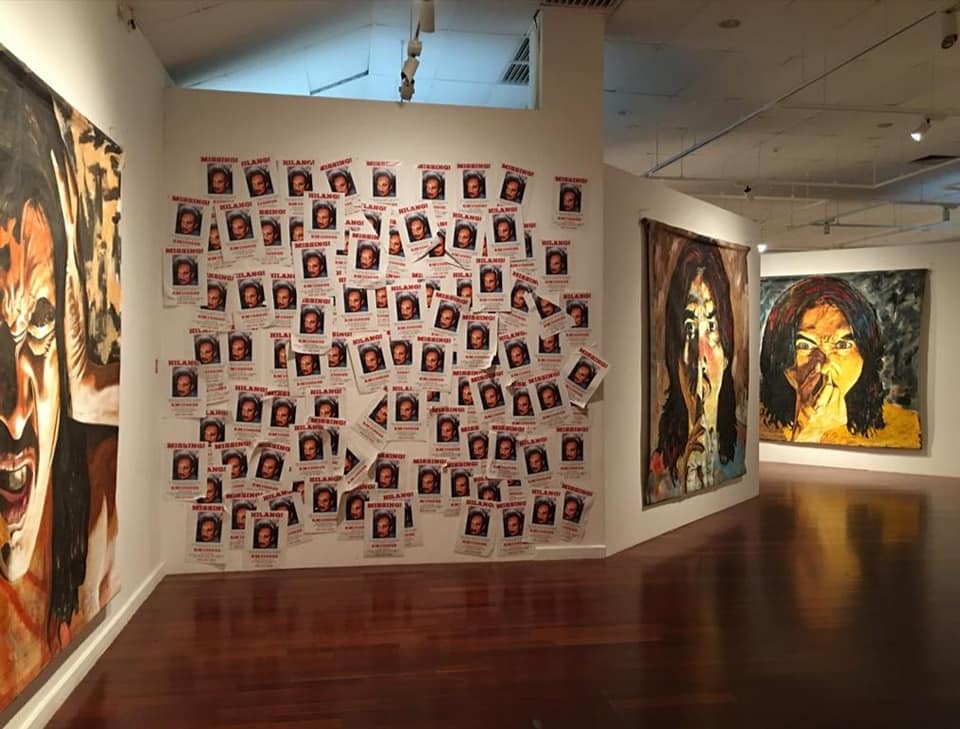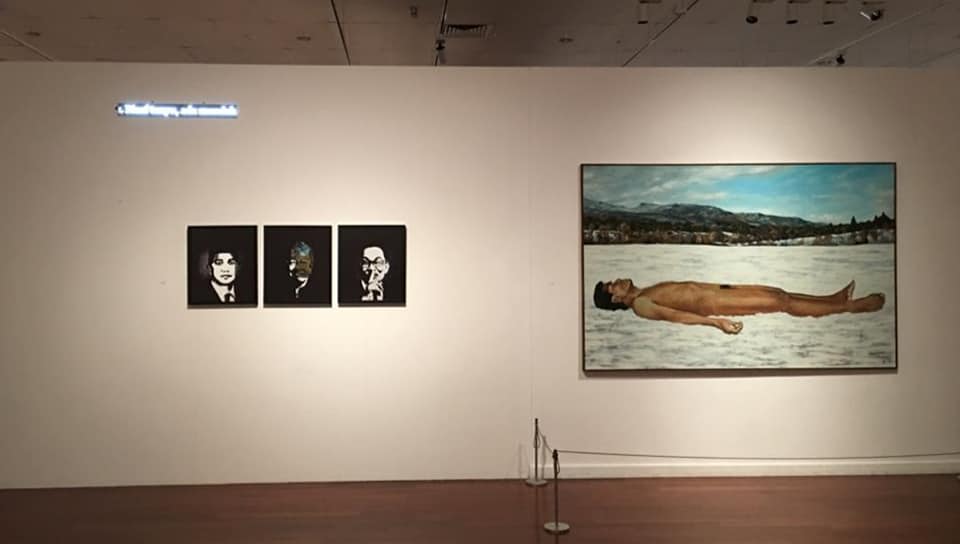Politics
Malaysian Artists Cry Foul as the National Gallery in Kuala Lumpur Censors Four Artworks for Their Political Content
The works were removed from an artist's mid-career survey after a museum board member complained.

The works were removed from an artist's mid-career survey after a museum board member complained.

Taylor Dafoe

Four artworks by the Malaysian artist Ahmad Fuad Osman were removed from his mid-career survey at the National Art Gallery in Kuala Lumpur after an unnamed board member complained about their political content.
Among the works censored by the museum is a 2002 installation of missing-persons posters featuring the face of Malaysian politician Anwar Ibrahim, as well as a triptych of portraits depicting Ibrahim and prime minister Mahathir Mohamad.
“It is arbitrary, unjustified, and an abuse of institutional power,” Osman wrote in a letter published on his personal Facebook page on Sunday.
The artist says his show, titled “At the End of the Day, Even Art Is Not Important (1990–2019),” was originally intended to run through January 31, but was extended through February 29. All the works included in the exhibition were approved by the museum.
But on January 21, the administration informed him that they had removed the offending objects.
“So why remove these four works after they had already been discussed, approved, and on display for months?” Osman asks in his letter. “[The museum] justifies their decision on the basis of a single board member complaining that these works are obscene and political. This makes no sense.”
Osman requested that the museum “close the entire exhibition immediately, rather than let it remain open in its compromised state.”
As of Tuesday morning, the show remained open. The museum did not immediately respond to Artnet News’s request for comment.

An installation view of Ahmad Fuad Osman’s exhibition “At the End of the Day, Even Art Is Not Important (1990–2019),” at the National Art Gallery, 2020. Courtesy of the artist.
“The role of this gallery is an ‘institutional gallery’ funded by the government and therefore must act according to its norms,” Amerruddin Ahmad, the museum’s managing director, said in a statement released yesterday.
Calling the exhibition a “continuous process and not a final product,” Ahmad said the museum retained the right to remove any work that “touches the dignity of any individuals, religion, politics, race, culture, and the country.”
The censorship episode caused an uproar on social media throughout the country. Pakhruddin Sulaiman, a prominent collector who lent five works to the exhibition, took to his Instagram account to demand that the works be returned to him immediately, saying: “I don’t want them involved in an exhibition that has been compromised,” according to the Star, a Malaysian news source.
Yesterday, a group of Malaysian artists published an open letter addressed to the 13 members of Malaysia’s National Visual Arts Development Board demanding that the censored works be reinstalled by the museum and the name of the anonymous board member be revealed. As of Tuesday morning, 396 people had signed the document.
“The arbitrary censorship of artwork is a serious public matter, unbefitting to the values of a democratic, modern nation,” the letter reads. “The National Art Gallery represents the pride and integrity of Malaysian visual art, nationally and internationally. Unless this matter is addressed with full transparency and accountability, the standing of both will be irreparably damaged.”